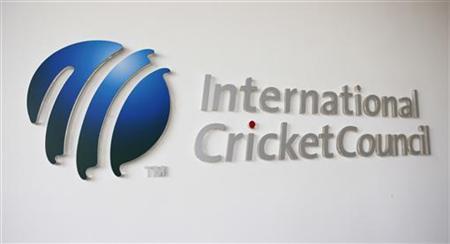ICC discusses Future Tours post 2012, anti-racism code
 Cape Town (South Africa), Dec. 9 : The ICC Chief Executives’ Committee met here on December 7 and 8 and discussed a range of issues relating to the playing and the business of cricket, some of which will be considered by the ICC Board when it next meets, in Perth at the end of January.
Cape Town (South Africa), Dec. 9 : The ICC Chief Executives’ Committee met here on December 7 and 8 and discussed a range of issues relating to the playing and the business of cricket, some of which will be considered by the ICC Board when it next meets, in Perth at the end of January.
The results of the meeting were as follows:
With the current FTP due to conclude in May 2012, the concept of an alternative structure to bilateral tours, including the possibility of an enhanced Test championship, was further discussed at length by the CEC. This is very much a work-in-progress and will continue to be explored at future meetings.
There was also a general discussion on the issue of Test cricket with Members acknowledging the need to find ways in which this format of the game can be protected and promoted.
The CEC agreed that the ICC should draft a separate anti-racism code to run independent from the ICC Code of Conduct. A draft code will be drawn up after receiving written comments and suggestions from Members.
The CEC was updated on the situation regarding proposed amendments to the Code of Conduct, specifically to do with Levels 3 and 4 charges being referred to an independent legally qualified adjudicator.
Members of the CEC called for stronger action against teams bowling their overs too slowly in Tests and ODIs. As a result, ICC management will review the relevant regulations with a view to encouraging better over-rates and strengthening sanctions against offending teams.
There was also a feeling among CEC members that a stronger stance needed to be taken against players guilty of verbal abuse.
The CEC recommended to the ICC Board that the role of the ACSU be expanded to include liaising and managing safety, security and terrorism intelligence matters with independent security consultants/agencies and advising the ICC Chief Executive and Board on all matters relating to safety and security.
This would be primarily for ICC events but it is envisaged that the ACSU would be prepared to offer this service to Members for bilateral series if asked to do so.
All Full Members and the top six Associate Members have agreed to have in place WADA-compliant codes by 1 July 2009. CEC agreed that draft copies of each Member’s anti-doping code must be with the ICC by 1 March 2009 to allow for any necessary amendments to be made by the required deadline.
Due to scheduling issues, the CEC was not in favour of the inclusion of cricket in the programme for the Commonwealth Games 2014 to take place in Glasgow.
While ICC regulations state that “participation in any form of international cricket shall always take priority over participation in any other form of cricket”, CEC recommends that this should not apply to all matches involving Associate Members.
Release of players to represent an Associate Member should only be made mandatory and therefore require a no-objection certificate (NOC) from the relevant Associate Member for the following matches: ICC Cricket World Cup matches, ICC Champions Trophy matches, ICC World Twenty20 matches, ICC U/19 Cricket World Cup matches, ICC Cricket World Cup Qualifier matches, ICC World Twenty20 Qualifier matches, ICC U/19 Cricket World Cup Qualifier matches, all ODIs and Twenty20 Internationals against Full Members.
The CEC noted that it followed from this that the relevant Associate Member would exercise its discretion in granting or withholding an NOC for those matches outside of the above list.
The CEC agreed with a recommendation from the ICC Development Committee to appoint one of the CEC members to sit on that committee. The Governance Review Committee will now consider this proposal and make a recommendation to the ICC Board for final approval.
They also recommended that a team of the tournament be selected from the ICC Women’s World Cup 2009 to be held in Australia in March. It also recommended that, at the annual ICC Awards, the Women’s Cricketer of the Year be selected using the same voting process as for the men’s awards.
On day two of the meeting there was a workshop led by a strategic facilitator from Ernst & Young South Africa. This interactive forum has successfully started a process to establish a number of key aims, objectives and challenges that will then feed into other decision-making forums including the ICC Board. This process is designed to help all the Members, as well as the ICC itself, to shape their long-term thinking and plans for international cricket in a cohesive and mutually beneficial way.
The session included discussions on the various formats of international cricket, the opportunities and challenges of the changing landscape, competitive balance and promotion.
“I was very encouraged by this workshop,” said ICC Chief Executive Haroon Lorgat.
“As a sport, cricket faces challenges and tensions at international level. But it also enjoys wonderful strengths. For this group it is vital that we work together for the good of the game around the world.
“This workshop highlighted people’s concerns and hopes for the game and will hopefully in time help us develop a long-term response that will make our strong sport even stronger.”
The CEC comprises the chief executives of the 10 Test-playing Members and three representatives from ICC Associate Members. The ICC Chief Executive chairs it. The ICC President and the Chairman of the ICC Cricket Committee will also be in attendance. (ANI)